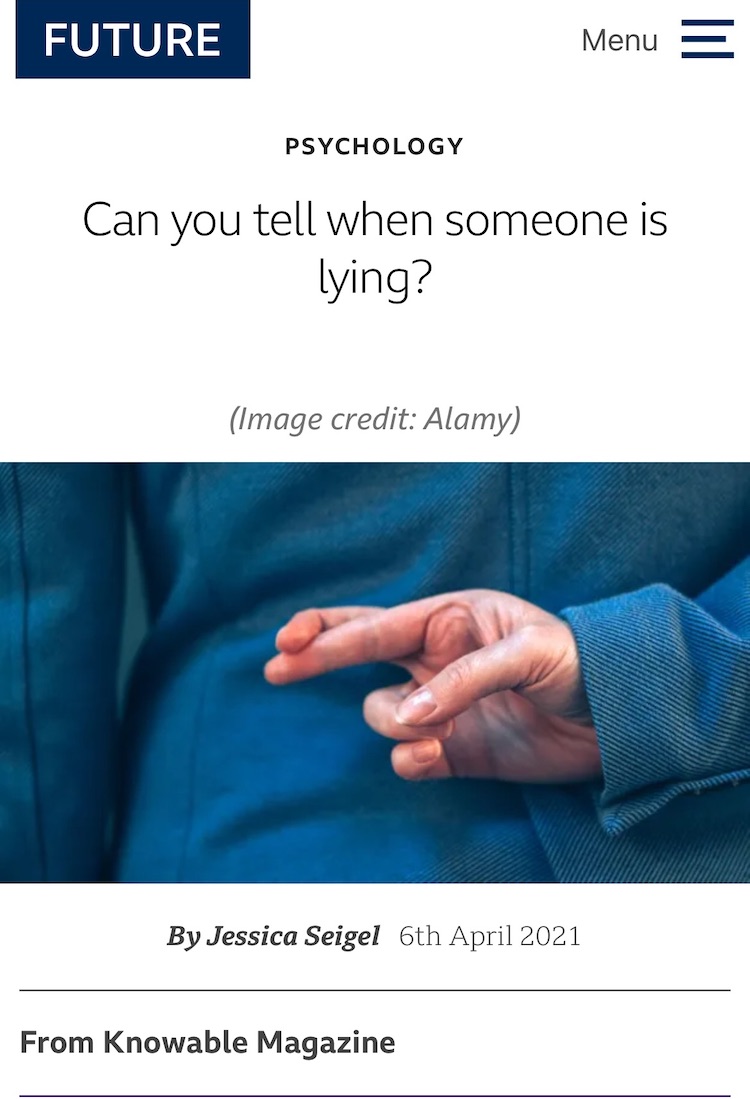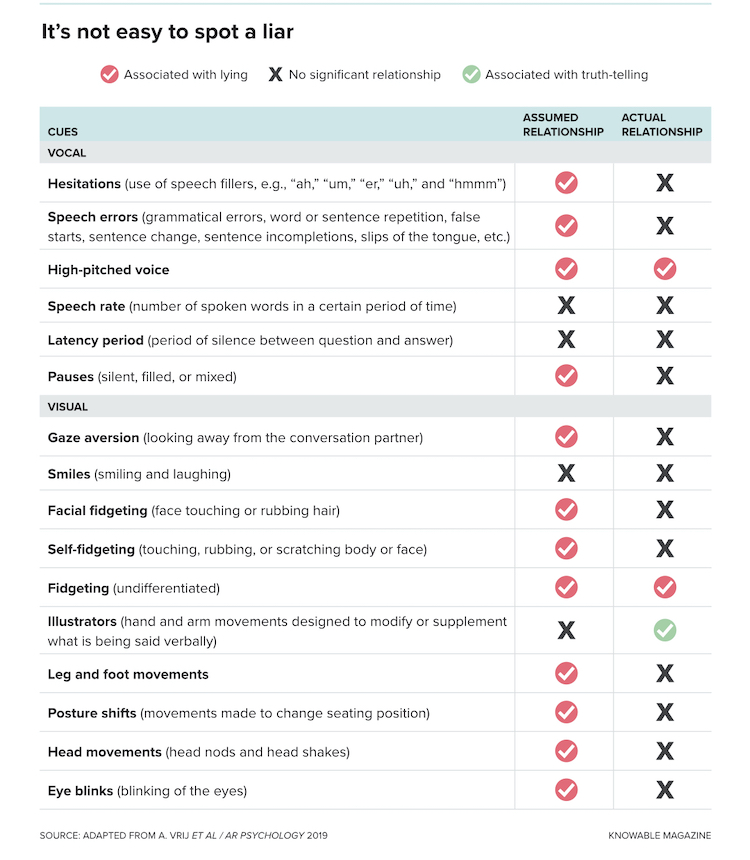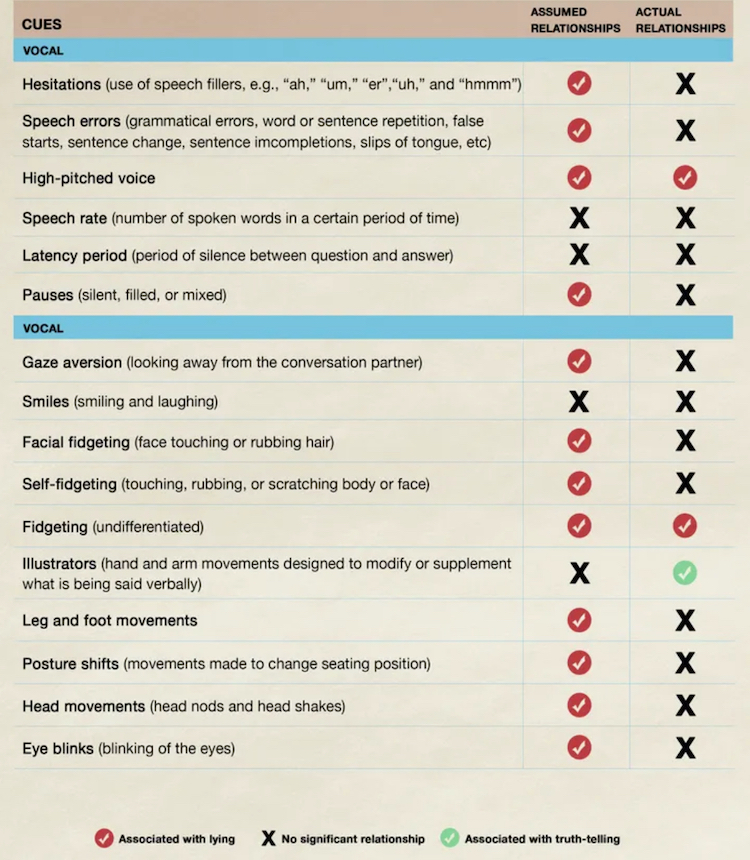The truth about lying
 Writing for BBC Future, via Knowable Magazine, Jessica Seigel asks Can you tell when someone is lying? And, if I were to reply that I could, would you know whether or not I was lying?
Writing for BBC Future, via Knowable Magazine, Jessica Seigel asks Can you tell when someone is lying? And, if I were to reply that I could, would you know whether or not I was lying?
We, even professionals such as the police, make assumptions as to how liars and truth-tellers behave. We perceive specific visual and vocal cues—like hesitation, failure to maintain eye contact, and shifting posture—as being associated with deception. But these assumptions may be incorrect.
Sixteen vocal and visual cues have been examined for their relationship with lying,* twelve of which have an assumed relationship. Of these, only two were found to to have an actual relationship with lying, while another was found to have an actual relationship with truth-telling. A high-pitched voice has both an assumed and actual relationship with lying, so Emo Philips is screwed no matter what.
To return to my original question, would you know whether or not I was lying?
It appears that one visual cue, hand and arm movements to modify or supplement verbal communication, is actually related with truth-telling. And I tend to augment face-to-face communications with illustration
. So, the answer's a qualified yes
…as long as you can see my hands.
But, since you're reading this post and cannot see my hands, I may have made the whole thing up, just to mess with your mind. BWA-HA-HA! (twirlsmoustache)
* Visual cues were incorrectly attributed in the BBC article, but correct in Knowable Magazine. You wouldn't think it possible to screw up copy/paste, but it seems that anything goes at the BBC.

